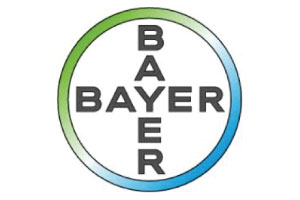Category: B

Royal Mail Tracked 24 (Signed For)

Royal Mail Special Delivery Guaranteed by 1pm

| Category | POM-V |
| Temperature | Ambient |
| MA/VM/EU No: | 00879/4115 |
| Species |
|
| VMD Link | https://www.vmd.defra.gov.uk/productinformationdatabase/files/SPC_Documents/SPC_112756.PDF |
| NOAH Link | |
| Dosage | Via the drinking water. Always make sure that the entire dose offered has been consumed. The medicated water should be made up fresh each day just before it is offered to the animals. The drinking water must be medicated throughout the treatment period, and no other water source should be available. Determine the bodyweight of the animals as accurately as possible in order to avoid underdosing. Chickens and turkeys: 10 mg enrofloxacin/kg bodyweight per day for 3-5 consecutive days. Treatment for 3-5 consecutive days; for 5 consecutive days in mixed infections and chronic progressive forms. If no clinical improvement is achieved within 2-3 days, alternative antimicrobial therapy should be considered based on susceptibility testing. Use only fresh pre-solutions, prepared every day before start of treatment. Pumping systems should be checked constantly to assure proper medication. Empty the water system and fill it with medicated water before starting the treatment. Calculate the daily quantity (ml) of Baytril 10% Oral Solution required for treatment period as follows: Total number of birds x Average body weight in kg x 0.1= Total volume (ml) per day Baytril 10% Oral Solution may be put directly into the header tank or introduced via a water proportioner pump. Rabbits: 10 mg/kg bodyweight per day for 5 consecutive days. Calculate the daily quantity (ml) of Baytril 10% Oral Solution required for treatment period as follows: Total number of rabbits x Average body weight in kg x 0.1= Total volume (ml) per day Use during pregnancy, lactation or lay Do not use in laying hens producing eggs for human consumption. Do not administer to layer replacement birds within 14 days of coming into lay. |
| Withdrawals | Do not use for prophylaxis. Do not use when resistance/ cross-resistance to (fluoro)quinolones is known to occur in the flock intended for treatment. Do not use in the case of known hypersensitivity to the active substance, other (fluoro)quinolones or to any of the excipients. Treatment of Mycoplasma spp infections may not eradicate the organism. Official and local antimicrobial policies should be taken into account when the product is used. Fluoroquinolones should be reserved for the treatment of clinical conditions which have responded poorly, or are expected to respond poorly, to other classes of antimicrobials. Since enrofloxacin was first authorised for use in poultry, there has been widespread reduction in susceptibility of E.coli to fluoroquinolones and emergence of resistant organisms. Resistance has also been reported in Mycoplasma synoviae in the EU. Whenever possible, fluoroquinolones should only be used based on susceptibility testing. Use of the product deviating from the instructions given in the SPC may increase the prevalence of bacteria resistant to the fluoroquinolones and may decrease the effectiveness of treatment with other quinolones due to the potential for cross resistance. In vitro, an antagonism was shown, when combining fluoroquinolones with bacteriostatic antimicrobial agents such as macrolides or tetracyclines and phenicols. The simultaneous application of substances containing aluminium or magnesium can impair the absorption of enrofloxacin. In the absence of compatibility studies, this veterinary medicinal product must not be mixed with other veterinary medicinal products. No adverse clinical symptoms were observed in chickens and turkeys treated respectively with doses up to 10 and 6 times higher than the therapy dose. The use of fluoroquinolones during the growth phase combined with a marked and prolonged increase in the intake of drinking water, and hence active ingredient, possibly due to high temperatures, may potentially be associated with damage of the articular cartilage. User Safety Those with known hypersensitivity to (fluoro)quinolones should avoid contact with this product. Avoid contact with skin and eyes. Rinse any splashes from skin or eyes immediately with water. Wash hands and exposed skin after use. Do not eat, drink or smoke while using the product. Withdrawal periods Chickens: Meat and offal: 7 days. Turkeys: Meat and offal: 13 days. Rabbits: Meat and offal: 3 days. Not authorised for use in birds producing eggs for human consumption. Do not administer to layer replacement birds within 14 days of coming into lay. Environmental Safety Any unused veterinary medicinal product or waste materials derived from such veterinary medicinal products should be disposed of in accordance with local requirements. |